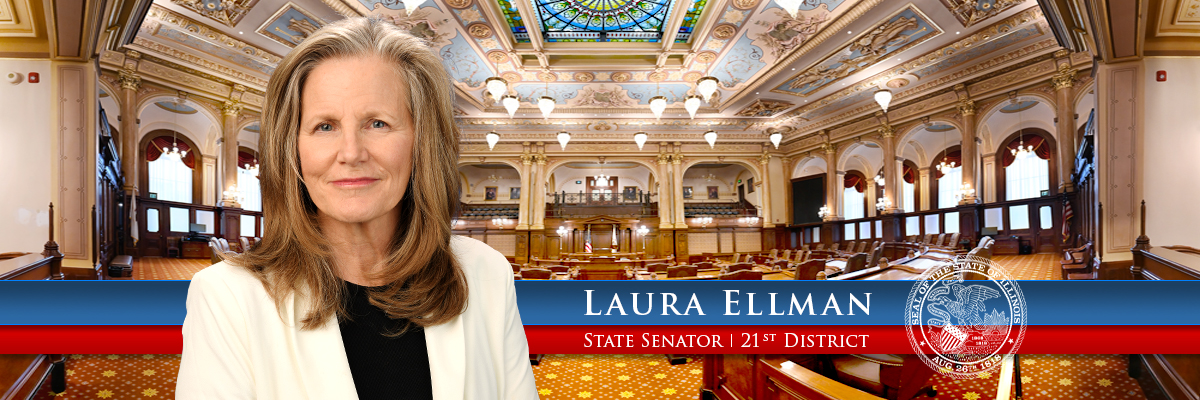- Details
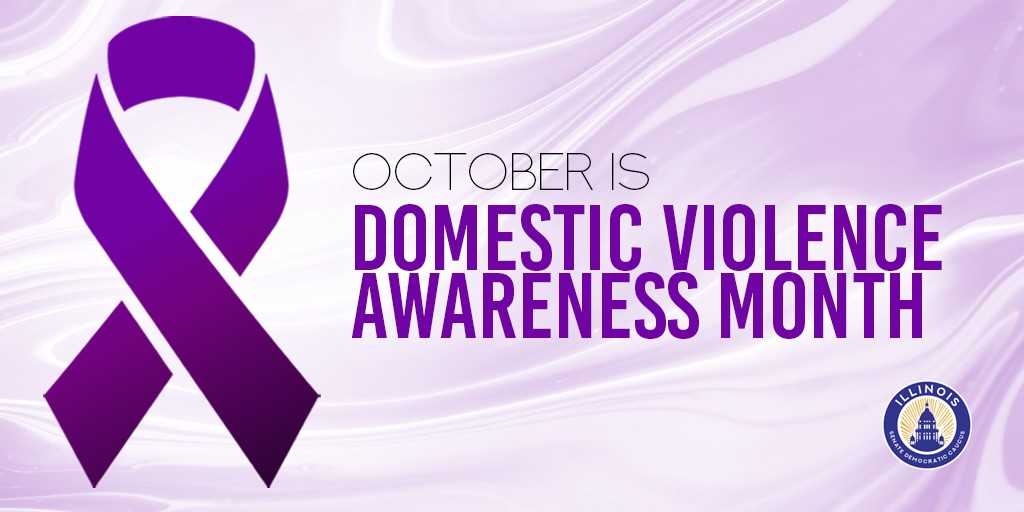
NAPERVILLE – As the COVID-19 pandemic continues, another crisis continues to take a toll on people across the nation – domestic violence. During Domestic Violence Awareness Month, State Senator Laura Ellman is highlighting state and local resources to make sure Illinois residents are aware that there is assistance available.
“Unfortunately, domestic violence is a reality in all of our communities, and it doesn’t discriminate. It affects all classes, genders and races,” Ellman said. “No one should feel unsafe in their own home, but if you do, there are resources available to help.”
According to the Illinois Coalition Against Domestic Violence, in 2019, there were over 45,000 adult survivors in the state of Illinois and nearly 9,000 children who have experienced or witnessed domestic violence. While safe shelter is crucial to a survivor’s safety, only about 11% of adult survivors served by domestic violence agencies last year received emergency shelter or transitional housing.
The pandemic has caused domestic partners and families to live in close proximately for longer periods of time. If domestic violence is already a problem in a relationship, the stress of this public health crisis may be making it worse and allowing an abusive person to exercise more control over a companion or child.
"During these difficult times when Illinoisans are expected to limit their time outside of their homes, too many don’t have a safe home to stay in,” Ellman said. “Unfortunately, the rate of domestic violence has gone up since COVID-19 began to affect our daily lives.”
The following available resources include confidential support, multilingual advocates, and survivor-centered services:
- Center for Prevention of Abuse at 800-559-SAFE (800-559-7233)
- Illinois Domestic Violence Help Line at 877-TO END DV (877-863-6338)
- Text HOME to the Crisis Text Line at 741741 for help 24/7 with any kind of crisis
Additionally, residents can find local shelters and assistance from domestic shelters at www.domesticshelters.org.
- Details
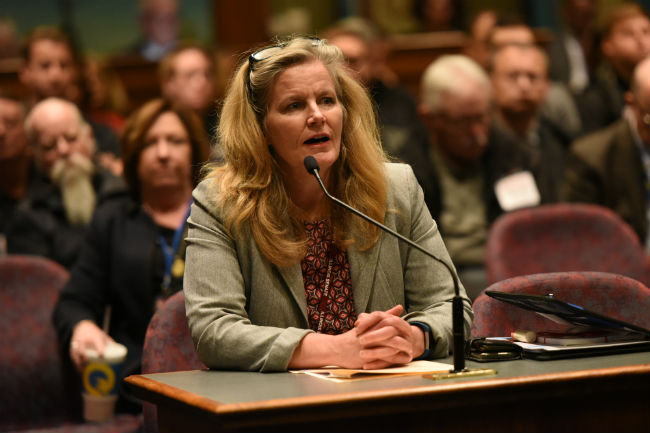
NAPERVILLE – After months of discussion, negotiation and development of a plan to support sexual assault survivors, State Senator Laura Ellman (D-Naperville) is pleased to see the Illinois State Police Division of Forensic Services has unveiled a sexual assault evidence tracking system to allow survivors to track the status of their medical forensic exams, also sometimes called “rape kits.”
“Survivors have been forced to live day in and day out without any knowledge on the progress of testing their kits,” Ellman said. “I hope this new tracking system helps them feel more control over the progress of their cases.”
Through ISP’s new tracking system, survivors of sexual assault will be able to monitor the status of the evidence in their case, from collection at the hospital, through law enforcement pick-up and submission to the forensic lab, and ultimately to the State's Attorney's office, where final results will be received. The system, called CheckPoint, can only be accessed by unique case numbers and passwords to ensure privacy of survivors.
“The CheckPoint system will allow survivors to have real-time information about their evidence while protecting their privacy,” said ISP Director Brendan F. Kelly. “This point-by-point knowledge of the location of their evidence will help to empower survivors and foster public trust in the system. ISP DFS personnel remain committed to supporting survivors of sexual assault through transparency and accountability.”
]Currently, any survivor of sexual assault who seeks a forensic medical exam at a health care facility that has implemented the CheckPoint system is able to track the progress of their evidence in the system.
In 2018, the Sexual Assault Evidence Tracking and Reporting Commission recommended the tracking system in its final report. The report can be found here.
- Details
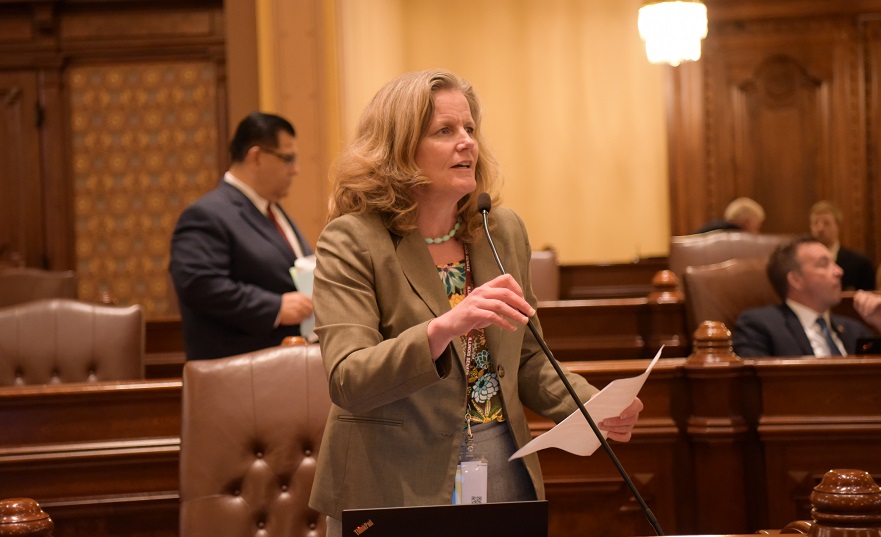
NAPERVILLE – State Senator Laura Ellman (D-Naperville) is encouraging female small business owners to sign up for the Illinois Department of Commerce and Economic Opportunity’s “All in for Women: BIG Webinars.” During women’s small business month, the webinars focus on women-owned businesses, instructing owners on how to navigate eligibility and the application process for business interruption grants offered by the state.
“As women, it’s our responsibility to lift each other up and make sure that we have access to these grants and other opportunities,” Ellman said. “If you own a business and are thinking of applying for a BIG grant, take one of these seminars.”
The Business Interruption Grant program is a $636 million program created to provide economic relief for small businesses hit hardest by COVID-19. The program uses federal funds provided by the CARES Act to help offset COVID-19 related losses for Illinois small businesses.
In the second round of grants, $220 million will be allocated to provide relief for all types of small businesses, including women-owned small businesses. Funding can be used to help businesses with working capital expenses, including payroll costs, rent, utilities, and other operational costs.
“These funds have and will continue to give businesses the ability to reopen with the new guidelines and provide a safer environment for employees and customers,” Ellman said.
In these webinars, women-owned businesses will learn about eligibility, program details, and the application process. Technical assistance support will also be provided for the last 30 minutes of every session.
A total of four webinars are being offered over the course of the month. The dates and time of each webinar is listed below along with links to register.
Tuesday, Oct. 6, 2 p.m. Register HERE
Saturday, Oct. 10, 10 a.m. Register HERE
Tuesday. Oct. 20, 2 p.m. Register HERE
Tuesday, Oct. 27, 2 p.m. Register HERE
- Details
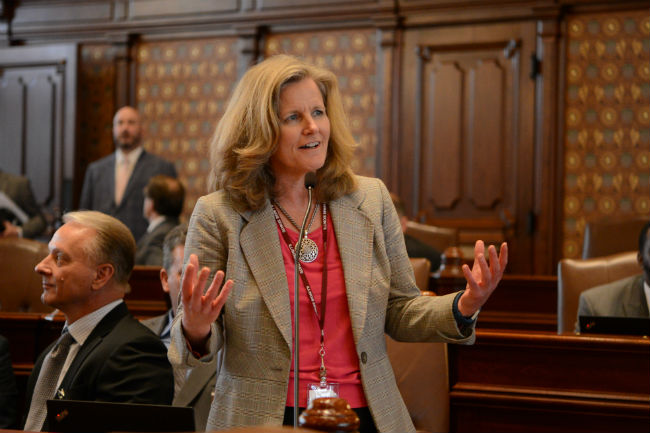
NAPERVILLE – Now that summer has come to an end and flu season begins, State Senator Laura Ellman (D-Naperville) is encouraging all Illinoisans, especially older adults, to get a flu shot to lower the burden on our healthcare system, so it can better combat a potential resurgence of the COVID-19 pandemic.
“Getting yourself a flu shot is a simple way to prevent yourself from getting the seasonal flu,” Ellman said. “Getting your shot will also help lower the burden on our healthcare system as it continues to fight COVID-19.”
According to the Illinois Department of Public Health, older adults and people with chronic health issues are more likely to develop serious complications resulting from an influenza infection. While flu seasons can vary in severity, people 65 years and older tend to be the most vulnerable. According to the Centers for Disease Control and Prevention, an estimated 70% to 85% of seasonal flu-related deaths have occurred in adults 65 years and older.
“If you’re an older Illinoisan, this is a simple way to prevent any potential serious health issues as we move into the fall,” Ellman said.
Most insurance plans, including Medicare and Medicaid, cover one flu shot per flu season. It is always advisable to consult a health care provider before seeking medical treatment. You can find out where to get a flu vaccine with Vaccine Finder.
More Articles …
Page 51 of 64
